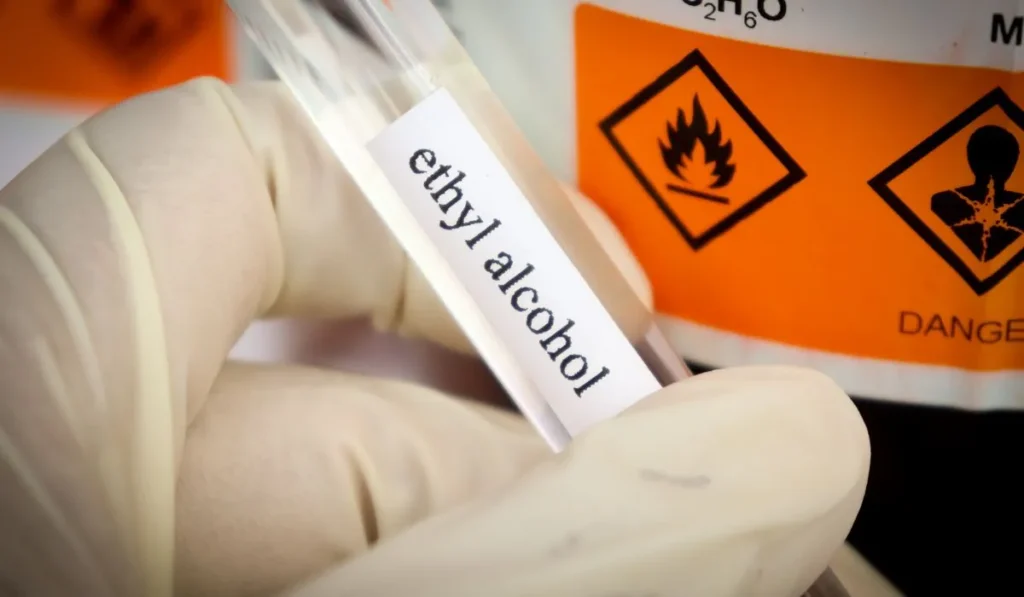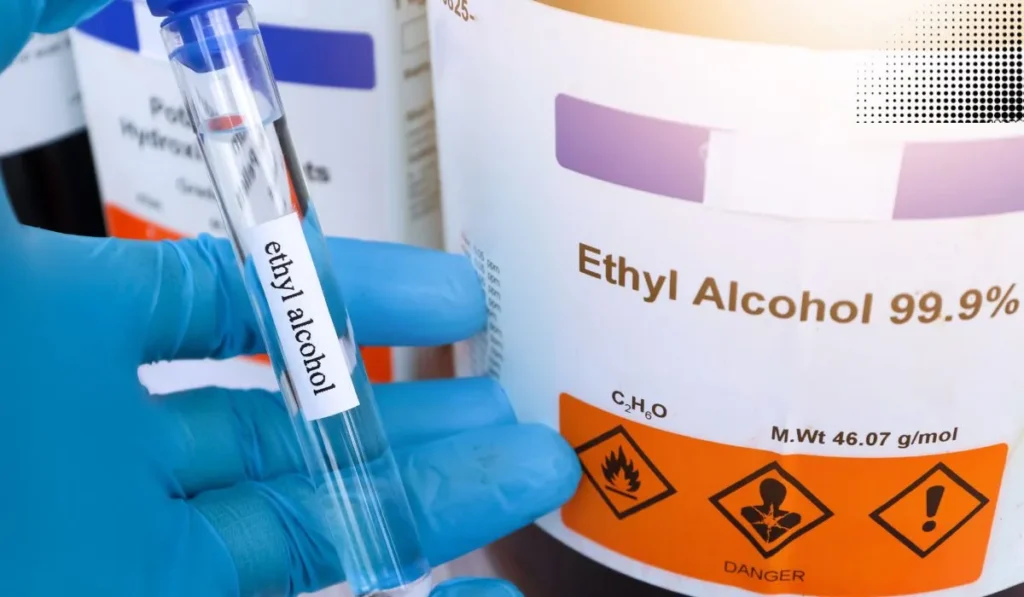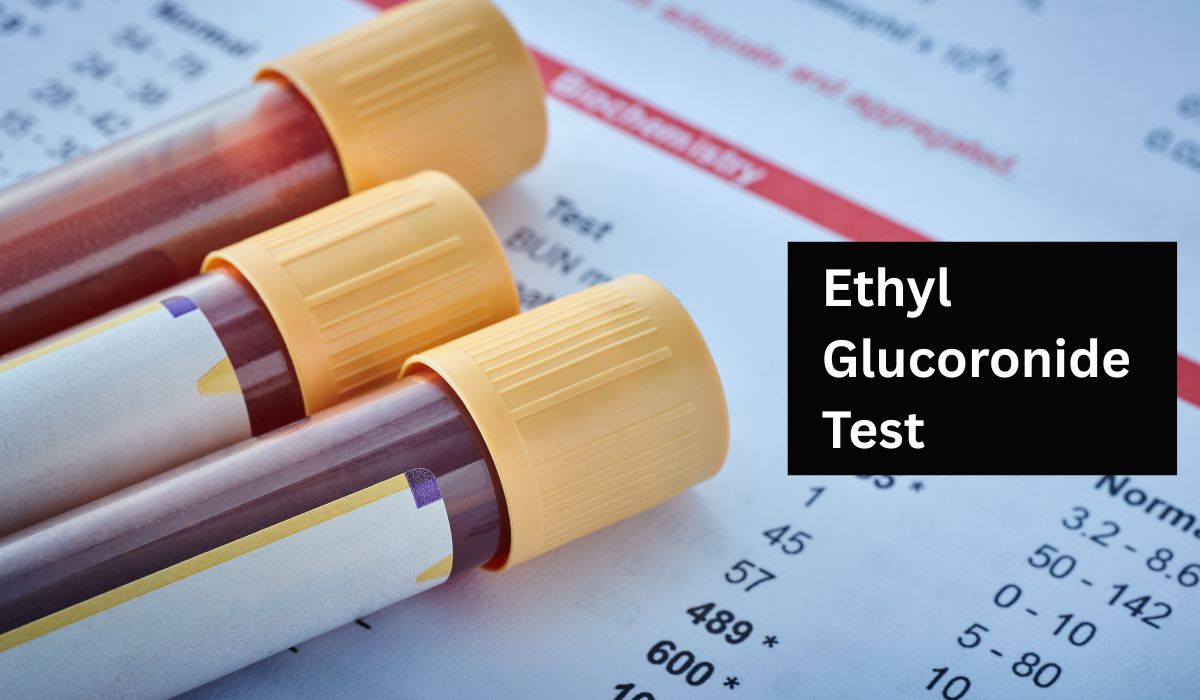What Is an Ethyl Glucuronide Test?
An Ethyl Glucuronide test, also called an EtG test, is a type of urine test that checks if someone has alcohol in their body. Even if someone drank an alcoholic beverage a few days ago, this test can still find it! That’s because it looks for a tiny part of alcohol called a metabolite named ethyl glucuronide.
Doctors and labs use this test to help check for substance abuse, see if someone is following a sobriety plan, or check for health problems like liver issues or chronic kidney disease.
Why Do People Take an EtG Test?
For Sobriety and Recovery Programs
Some people take an EtG test as part of a probation or treatment plan. The test shows if someone has been drinking alcohol, even if it was days ago. This helps programs that deal with mental health, dual diagnosis, or addiction recovery keep people safe.
In Hospitals and Clinics
Doctors may use this test in clinical trials, primary care, or hospital settings to learn more about a patient’s behavior, nutrition, or medicine use

How Does the Test Work?
When you drink alcohol, your body breaks it down. One of the by-products is ethyl glucuronide. Your liver helps turn the ethanol (the main alcohol in drinks) into this biomarker. Then it leaves your body through excretion, mostly in your urine.
This test is part of toxicology screening. It’s often done using chromatography or mass spectrometry in a laboratory. These big words just mean fancy machines that can find very tiny amounts of chemicals!
What Can an EtG Test Find?
Even Small Amounts of Alcohol
The EtG test is very sensitive. It can tell if someone has had even a small sip of mouthwash, hand sanitizer, or any ethanol product. Some foods and medicines can also have traces of alcohol.
Up to 80 Hours After Drinking
The EtG test can usually detect alcohol up to 80 hours (about 3 days) after someone had their last drink. That’s longer than a breathalyzer or blood test, which usually only show alcohol for a few hours.
What Samples Are Used?
Most EtG tests use urine. But sometimes blood, saliva, or serum might be used. Urinalysis is the most common way because it’s easy and not painful.
Is It Always Right?
Like all tests, EtG tests have something called sensitivity and specificity. That means how well the test finds the right answer. Sometimes, alcohol in mouthwash, hand sanitizer, or even hygiene products can give a false result. That’s why doctors look at the whole picture, including weight, behavior, and policy.

Who Needs This Test?
People in Recovery
Someone working on sobriety from alcohol might get regular EtG tests. This helps track their abstinence and supports their treatment plan.
People with Health Conditions
Doctors might use this test if someone has liver disease, type 2 diabetes, or other problems where alcohol could be dangerous. It’s also used in medicine to keep track of risk for problems like cancer or cholesterol issues.
Is It Used in Research?
Yes! Many PubMed and clinical trial studies use EtG tests to understand alcohol use, addiction, and how drinking affects things like mental health or the opioid epidemic. Sometimes it’s used with other tests like:
- Phosphatidylethanol (PEth)
- Carbohydrate Deficient Transferrin (CDT)
- Human Chorionic Gonadotropin (HCG) for pregnancy
- Oxycodone and methamphetamine screenings
- Naloxone and opioid tracking
Can Kids or Teens Take This Test?
Doctors usually don’t give this test to children unless there’s a special reason. But in some in vitro or research settings, it might be used to study family behavior or mental health.
Is It Covered by Insurance?
Many EtG tests are covered by Medicare or other insurance, especially if they are part of a physician’s treatment plan. This makes accessibility easier for people who need help.
What About People with Diabetes?
People with type 2 diabetes might sometimes have sugar in their urine, which can make the test a little tricky. Doctors use extra information, like blood sugar or other tests, to be sure.
How Long Does It Take to Get Results?
The turnaround time for EtG tests depends on the lab. Some clinics give results in 24 hours, while others might take 2–3 days.
What Is the Difference Between EtG and Other Alcohol Tests?
| Test Type | Detects Alcohol For | Sample Type |
|---|---|---|
| Breathalyzer | Hours | Breath |
| Blood Test | Up to 24 hours | Blood |
| EtG Test | Up to 80 hours | Urine |
| PEth Test | Weeks | Blood |
What Can Cause a False Positive?
Some common things that may affect EtG tests include:
- Hand sanitizer
- Mouthwash
- Foods cooked with alcohol
- Fermented foods
This is why it’s important to talk to your doctor and give full information.
What If Someone Has a False Result?
If someone tests positive but says they didn’t drink, doctors may use a second test like mass spectrometry or review their medicine, weight, and nutrition to check again.
Are There Any Risks?
The test is safe and easy. There is no real risk unless someone feels embarrassed or stressed. That’s why support from a physician, counselor, or mental health expert is so important.
How Do Doctors Use This Information?
Doctors use EtG test results to:
- Help patients stay sober
- Track treatment progress
- Study how alcohol affects disease
- Protect people’s health
The test is also used with other tools in primary care, clinical trials, and addiction medicine.
FAQs
What does an EtG test look for?
An EtG test checks for a metabolite called ethyl glucuronide, which shows if someone has had any ethanol (alcohol) in the last few days.
How long can alcohol be found in a urine test?
An EtG urine test can find alcohol use for up to 80 hours after the last drink, which is longer than most blood or breath tests.
Can using hand sanitizer make an EtG test positive?
Yes, in rare cases. Hand sanitizer contains ethanol, which might show up in the test. Always let your doctor know what you’ve used.
Is the EtG test better than a breathalyzer?
It depends. A breathalyzer shows if someone is drunk right now, but an EtG test shows if they drank alcohol in the last few days.
Who should get an EtG test?
People in sobriety programs, on probation, or in mental health and substance abuse care might need this test to check for alcohol use.
Final Thoughts
The ethyl glucuronide test is a powerful tool that helps doctors and counselors learn if someone has used alcohol. It’s a helpful biomarker that stays in your body longer than alcohol itself. Whether you’re part of a treatment program, dealing with a disease like type 2 diabetes, or working with your primary care doctor, this test gives helpful information to support your health and sobriety.
If you think this test could help you or someone you know, talk to a physician or mental health professional today.








